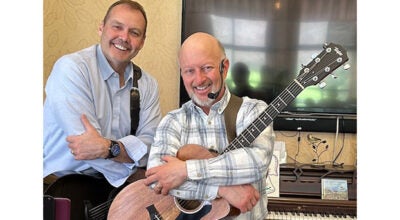Drunken boating legislation progresses
Published 10:48 pm Monday, January 23, 2012

Photo provided Michigan House of Representatives Cass County Prosecutor Victor Fitz, right, joins state Reps. Matt Lori, R-Constantine, and Sharon Tyler, R-Niles, in testimony before the House Judiciary Committee.
Legislation to bring the blood alcohol level for boaters and operators of other recreational vehicles in line with the limits for automobile drivers today cleared the House Judiciary Committee.
House Bills 4072 and 4073, introduced by Rep. Matt Lori, R-Constantine, sets the legal blood alcohol content (BAC) for watercraft operators at 0.08, the same limit that constitutes drunken driving. Current law sets the BAC at 0.10 for operators of recreational vehicles.
Lori, joined by Cass County Prosecutor Victor Fitz and state Rep. Sharon Tyler, R-Niles, testified before the committee in support of the legislation. He cited a 2005 tragedy in which 7-year-old Ryan Zielinski was killed on Donnell Lake in Cass County.
The child died when a personal watercraft driver with a BAC that would have gotten him arrested for drunken driving slammed into the tube on which Ryan was being towed. Fitz said he was unable to prosecute the watercraft driver — who spent just six months behind bars — as severely as he would an automobile driver because of current law.
“With the assistance of my colleagues, Reps. Tyler and (Andrew) Kandrevas, we feel the time has come to enact laws that lower the BAC level to 0.08 for the operators of all recreational vehicles,” Lori said. “We owe it to a small child who died at the hands of a watercraft operator who was heavily impaired.”
The bipartisan package, which also applies to snowmobile and off-road vehicle operators, also amends the sentencing guidelines to make them conform to the drunken driving provisions of the Michigan Vehicle Code. Other bills in the package are House Bills 4794, 4795, 5028 and 5029.
Fitz commended legislators for supporting similar bills that had been enacted by the House on two previous occasions, but did not make it through the Senate.
The measures now go to the full House for consideration.






